
-
Find the right food for your petTake this quiz to see which food may be the best for your furry friend.Find the right food for your petTake this quiz to see which food may be the best for your furry friend.Health CategoryFeatured products
 Adult Salmon & Brown Rice Recipe Dog Food
Adult Salmon & Brown Rice Recipe Dog FoodSupports lean muscle and beautiful coat for adult dogs
Shop Now Adult 7+ Healthy Cuisine Roasted Chicken, Carrots & Spinach Stew Dog Food
Adult 7+ Healthy Cuisine Roasted Chicken, Carrots & Spinach Stew Dog FoodDelicious roasted chicken paired with tender vegetables in a succulent stew
Shop Now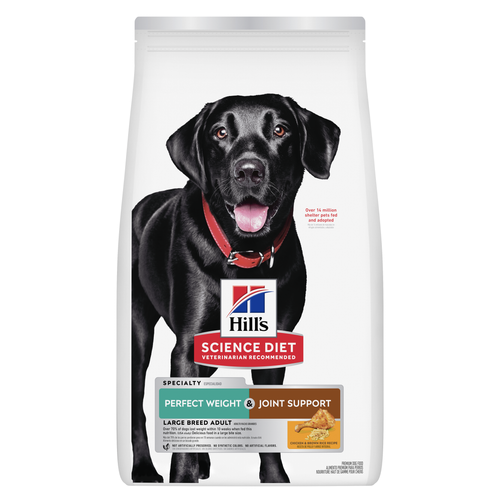 Perfect Weight & Joint Support Large Breed Chicken & Brown Rice Recipe Dog Food
Perfect Weight & Joint Support Large Breed Chicken & Brown Rice Recipe Dog FoodThis weight management and mobility support dog food was created with Hill’s unique understanding of the biology of overweight dogs
Shop NowFeatured products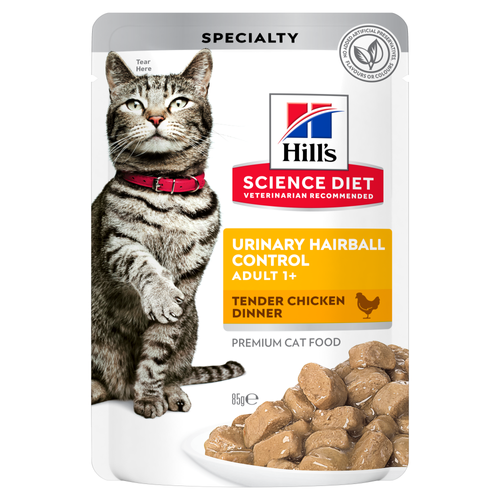 Adult Urinary Hairball Control Tender Chicken Dinner Cat Food
Adult Urinary Hairball Control Tender Chicken Dinner Cat FoodPrecisely balanced nutrition to support urinary health from kidney to bladder. With natural fibre technology to help reduce hairballs.
Shop Now Adult Salmon & Brown Rice Recipe Cat Food
Adult Salmon & Brown Rice Recipe Cat FoodSupports lean muscle and beautiful fur for adult cats
Shop Now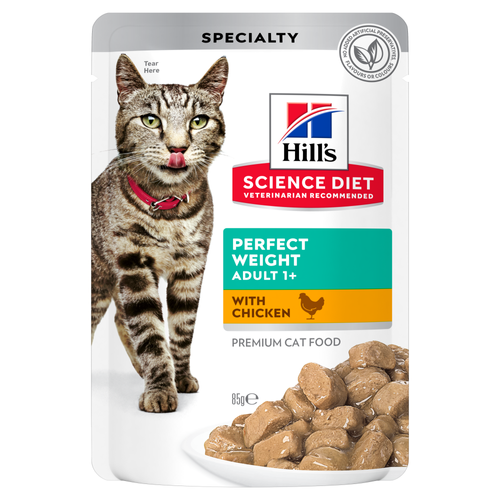 Adult Perfect Weight with Chicken Cat Food
Adult Perfect Weight with Chicken Cat FoodBreakthrough nutrition for your cat’s healthy weight maintenance and long-lasting weight support
Shop Now -
DogCat
- Cat Tips & Articles
-
Health Category
- Weight
- Skin & Food Sensitivities
- Urinary
- Digestive
- Kidney
- Dental
- Serious Illness
-
Life Stage
- Kitten Nutrition
- Adult Nutrition
Featured articles The Right Diet For Your Pet
The Right Diet For Your PetLearn what to look for in healthy pet food & nutrition, including ingredients, quality of the manufacturer, your pet's age, and any special needs they have.
Read More Water
WaterWater is the most important nutrient of all and essential for life. Animals can lose almost all their fat and half their protein and still survive, but if they lose 15% of their water, it will mean death.
Read More Pet Food Storage Tips
Pet Food Storage TipsWhere you store your cat and dog food can make a big difference in the quality and freshness once it is opened. Here are some common questions and recommendations for optimal storage for all of Hill’s dry and canned cat and dog food.
Read More -


 Cat owners sometimes blame a new cat food when their cat immediately throws it back up after eating. The connection seems logical, but other factors could point to a different cause rooted in behavior.
Cat owners sometimes blame a new cat food when their cat immediately throws it back up after eating. The connection seems logical, but other factors could point to a different cause rooted in behavior.
Regurgitation
Regurgitation, or expelling swallowed food through the mouth, can occur if your cat really loves a new food or competes with other pets in your home at mealtime. Here’s what happens: a cat eats so fast that he or she swallows food without chewing and ingests a lot of air, too. Large pieces of food and air in the stomach will likely come back up. If your cat throws up a whole kibble shortly after eating, regurgitation is likely to blame.
What to do
If you suspect your cat is eating too fast and regurgitating, take these steps to reduce the risk.


Tasty Tips
Feed smaller meals more often until you notice a slow down in eating speed.
Rather than using a deep dish, place the cat food on a wide, flat surface, like a cookie sheet. This spreads out the kibbles and forces your cat to take more time eating. It also prevents big mouthfuls of food.
Transitioning
Transitioning to a new cat food too quickly can also cause your cat to throw up. Mix increasing amounts of the new food with decreasing amounts of the old food over a seven-day period to avoid discomfort.
If your cat is showing signs of discomfort after eating or vomits intensely or constantly, see your veterinarian immediately. It’s always a good idea to consult your vet before changing cat foods.
Related products
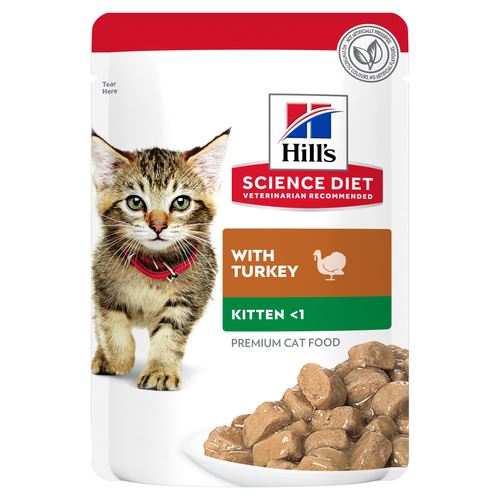
Delicious turkey chunks in gravy with omega-3 fatty acids for eye health and brain development in kittens, and high-quality protein to support muscle growth. Balanced levels of minerals for strong bones and teeth.

Breakthrough nutrition for your cat’s healthy weight maintenance and long-lasting weight support

Supports lean muscle and beautiful fur for adult cats

Precisely balanced nutrition to support urinary health from kidney to bladder. With natural fibre technology to help reduce hairballs.
Related articles
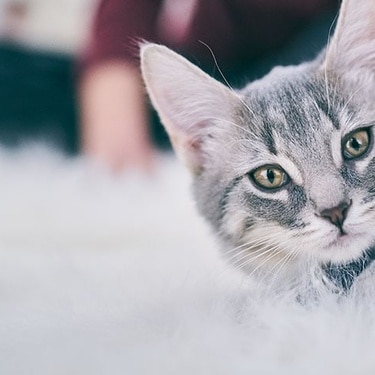
HillsPet Nutrition provides information on proper nutrition, fitness and special needs in keeping your cat healthy and happy.
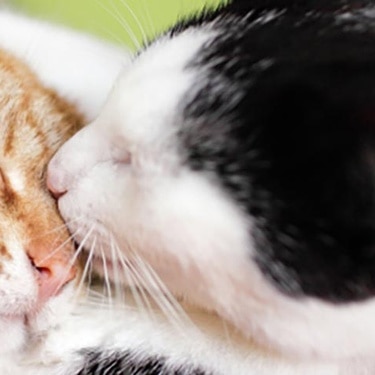
Being overweight puts a cat at risk for developing many serious health issues. Weight gain indicates an increase in body fat and usually results when your cat eats too much and exercises too little.

Get helpful information on proper feline oral healthcare and why it's so vital to take care of your cat's teeth.
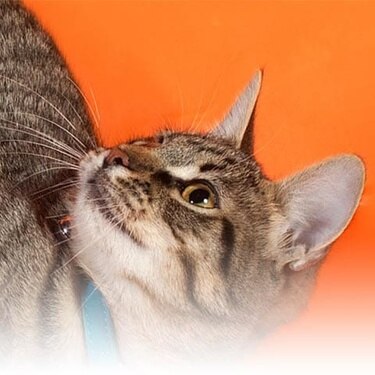
As a responsible pet owner you owe it to yourself and your cat to understand problems associated with overweight cats.

Put your cat on a diet without them knowing
Our low calorie formula helps you control your cat's weight. It's packed with high-quality protein for building lean muscles, and made with purposeful ingredients for a flavorful, nutritious meal. Clinically proven antioxidants, Vitamin C+E, help promote a healthy immune system.
Put your cat on a diet without them knowing
Our low calorie formula helps you control your cat's weight. It's packed with high-quality protein for building lean muscles, and made with purposeful ingredients for a flavorful, nutritious meal. Clinically proven antioxidants, Vitamin C+E, help promote a healthy immune system.


